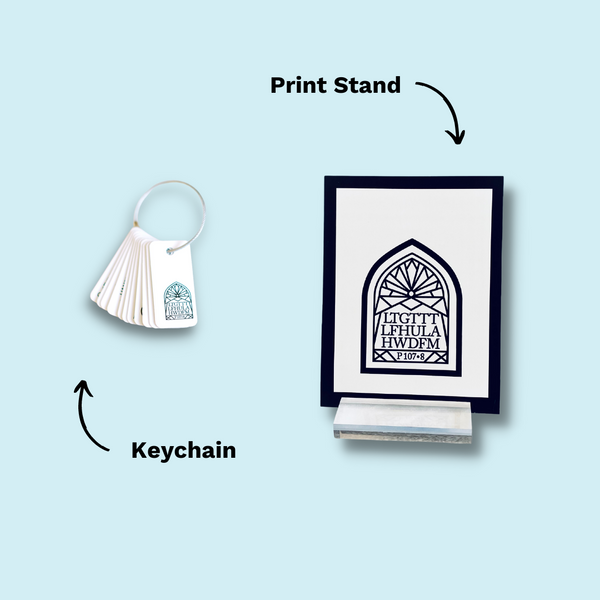“I will give you a new heart and put a new spirit in you; I will remove from you your heart of stone and give you a heart of flesh.” — Ezekiel 36:26
The Puritan preacher Jonathan Edwards is credited with saying, “You contribute nothing to your salvation except the sin that made it necessary.” Ouch! If this statement makes you bristle, you are not alone.
As we considered in our devotional last week, we are a people conditioned to believe “God helps those who help themselves.” But our memory verse this month confirms Edwards’ conclusion. Even as we rebel against him, our God graciously declares, ”I will give you a new heart and put a new spirit in you; I will remove from you your heart of stone and give you a heart of flesh” (Ezekiel 36:26).
God, for the sake of his name, helps those who cannot help themselves. We contribute sin, and he contributes salvation. Edwards’ statement stings at first, but then brings a wave of relief, as we realize our relationship with the Lord is his doing, not ours. We did not earn our salvation and therefore we cannot lose it. Hallelujah!
No Boasting
The Apostle Paul is clear about our role in our salvation in his letter to the Ephesians. He says to the church at Ephesus and to you and me, “For it is by grace you have been saved, through faith—and this is not from yourselves, it is the gift of God—not by works, so that no one can boast” (Ephesians 2:8-9).
Paul does not hold back when he paints a picture of what we are like before the Lord makes us his own. We are “dead in our transgressions and sins…deserving of wrath” (Ephesians 2:1, 3), “powerless…ungodly…sinners” (Romans 5:6, 8), in “the domain of darkness” (Colossians 1:13).
We cannot boast about our role in salvation because, in and of ourselves, we are powerless and deserving of wrath. Edwards’ statement rings true. All we bring to the table is our sin. And Jesus trades the punishment we are due with the righteousness that only he can earn. What a marvelous gift. What amazing grace!
A Contradiction?
Here’s where things can start to feel confusing though. Jesus himself calls us to “Repent and believe the good news!” (Mark 1:15). When the jailer asks what he must do to be saved, Paul and Silas reply, “Believe in the Lord Jesus, and you will be saved” (Acts 16:31). Paul says he preached “that [Gentiles] should repent and turn to God and demonstrate their repentance by their deeds” (Acts 26:20). The Apostle Peter says the Lord is patient, “not wanting anyone to perish, but everyone to come to repentance” (2 Peter 3:9).
Repentance and belief are required for salvation. It’s clear that we must surrender and turn from our rebellion to our Savior. Repentance, belief, and salvation are all intertwined.
In sum, then, our salvation is a gift of God, not the result of our own works. And also, in order to be saved, we must repent and believe. While these two biblical truths may initially appear to contradict one another—the first seems like God’s action and the second ours—they are not in opposition. Jesus alone is the “pioneer and perfecter of our faith” (Hebrews 12:2). He authors our salvation from start to finish. He prepares our hearts to hear and believe the good news.
Our memory verse shines light here. God says, “I will give you a new heart and put a new spirit in you; I will remove from you your heart of stone and give you a heart of flesh” (Ezekiel 36:26). The Lord himself prepares us for repentance and belief. The new spirit he puts in us is the Holy Spirit who enables us to be spiritually born again. God changes our hearts of stone to hearts of flesh so that we might repent and believe.
Know > Believe > Confess > Go
God’s sovereignty over our salvation is the best news. If we were required to bring anything to the table, in our powerlessness, we would fail. What a gift that Jesus looks on us and has compassion because we are helpless (Matthew 9:36). And in his compassion for the lost, to those of who have been found, he unflinchingly says, “Go.”
God is not only sovereign over our salvation, but he is sovereign over how we come to believe in the first place. He ordains both the ends and the means.
Paul breaks it down for us in his letter to the Romans. He says, “If you declare with your mouth, ‘Jesus is Lord,’ and believe in your heart that God raised him from the dead, you will be saved” (Romans 10:9). We must know the gospel, believe the gospel, and confess the gospel.
But Paul raises a fair question in the next paragraph. “How, then, can they call on the one they have not believed in? And how can they believe in the one of whom they have not heard? And how can they hear without someone preaching to them? And how can anyone preach unless they are sent?” (Romans 10:14-15).
Friends, we who follow Jesus are sent. Jesus says, “Therefore go and make disciples of all nations, baptizing them in the name of the Father and of the Son and of the Holy Spirit” (Matthew 28:19).
To the Nations
Here we come full circle. Ezekiel says God was concerned for his name among the nations (see last week’s article). He gave his Spirit to Israel so that his holy name might be proclaimed to all people. Jesus told his disciples to receive the gift of the Holy Spirit and to be his witnesses in Jerusalem, Judea, Samaria, and to the ends of the earth. Paul asks how will others know the gospel if we don’t go? And Jesus says, “Go.”
Jonathan Edwards’ words are true: we contribute nothing to our salvation except the sin that made it necessary. But we are saved so that others might know. God ordains the ends of our salvation and the means of our salvation. You and I have received the gift of salvation, that we might share it with others.
As we sit in wonder and relief that our salvation is a gift of God from start to finish, may you and I be compelled to go. God alone saves us, but he also chooses to send us, that others may know. May we jump at the chance to proclaim the good news.
If your heart was once stone, but is now flesh, Go. If the Spirit now lives in you, Go. Go across the street, go across the city, go across the oceans. The nations await God’s holy name.




